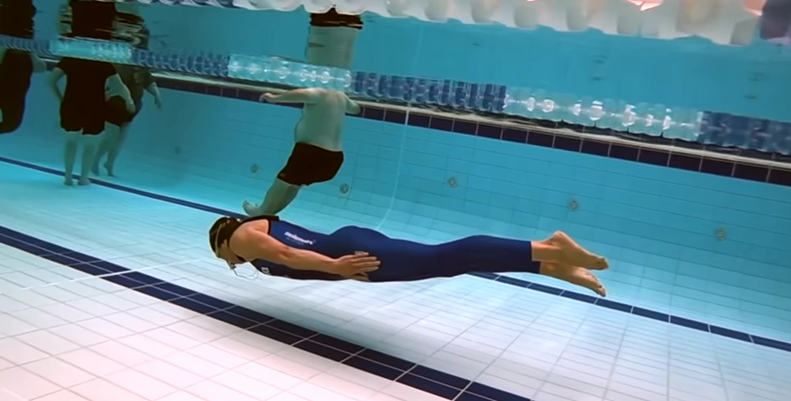Exploring the World Beneath the Waves: A Freediver's Guide
- James Cini

- Sep 5, 2025
- 4 min read
Freediving is an extraordinary way to explore the underwater world using only your breath. It combines physical skill, mental focus, and a deep connection with the ocean. Whether you are a beginner or looking to improve your technique, this freediving guide will help you understand the essentials of this captivating sport. From equipment and safety tips to the best locations and training methods, you will find practical advice to start your freediving journey confidently.
Understanding Freediving: A Comprehensive Freediving Guide
Freediving is the art of diving underwater without the use of breathing apparatus. Instead, divers rely on holding their breath while exploring the depths. This sport requires a unique blend of relaxation, breath control, and physical conditioning.
Key Freediving Techniques
Breath-hold training: Learning to hold your breath longer is fundamental. Techniques like diaphragmatic breathing and CO2 tolerance exercises help increase your capacity.
Equalization: As you descend, pressure increases, so equalizing the pressure in your ears and sinuses is essential to avoid discomfort or injury.
Relaxation: Staying calm underwater reduces oxygen consumption and extends dive time.
Streamlining: Proper body positioning minimizes resistance and conserves energy.
Essential Freediving Equipment
While freediving requires minimal gear compared to scuba diving, some equipment enhances safety and performance:
Mask and snorkel: A low-volume mask improves visibility and reduces the effort to equalize.
Fins: Long, flexible fins provide efficient propulsion.
Wetsuit: Depending on water temperature, a wetsuit keeps you warm and protects against abrasions.
Weight belt: Helps achieve neutral buoyancy for easier descents and ascents.
Safety First
Freediving can be risky without proper precautions. Always dive with a buddy, never push your limits alone, and learn rescue techniques. Taking a certified freediving course is highly recommended to understand safety protocols and improve your skills.

Finding the Best Freediving Spots: A Practical Freediving Guide
The world offers countless freediving opportunities, from tropical reefs to deep blue caves. Choosing the right location depends on your skill level and interests.
Top Freediving Destinations
Blue Hole, Dahab, Egypt: Famous for its deep blue waters and stunning coral formations, ideal for intermediate and advanced divers.
Dean’s Blue Hole, Bahamas: The world’s second deepest blue hole, perfect for experienced freedivers seeking depth challenges.
Great Barrier Reef, Australia: Offers vibrant marine life and shallow reefs, great for beginners.
Mediterranean Sea, Italy and Greece: Calm waters and beautiful underwater landscapes make these spots popular for all levels.
Local Freediving Opportunities
If you prefer to stay closer to home, many coastal areas offer excellent freediving conditions. For example, freediving opportunities in Geelong provide access to calm waters and professional training facilities, making it a great place to start or improve your freediving skills.
Tips for Choosing a Freediving Location
Check water visibility and temperature.
Research local marine life and underwater terrain.
Consider accessibility and available support services.
Look for certified freediving schools or guides.

How much do free divers get paid?
Freediving can be more than a hobby for some; it can become a profession. However, income varies widely depending on the role and experience.
Professional Freediving Careers
Freediving instructor: Teaching courses and guiding students is a common way to earn money. Certified instructors can work at dive centers or run their own schools.
Underwater photography/videography: Skilled freedivers often combine their diving with capturing marine life, selling images or working on documentaries.
Competitive freediving: Prize money and sponsorships are available but usually limited to top athletes.
Commercial freediving: Some industries use freedivers for underwater inspections, maintenance, or scientific research.
Income Range
Entry-level instructors may earn between $20,000 and $40,000 annually.
Experienced instructors and professionals can make $50,000 or more.
Freelance photographers and videographers’ income varies greatly based on projects.
Factors Affecting Earnings
Location and demand for freediving services.
Level of certification and experience.
Ability to market oneself and build a client base.
Freediving as a career requires passion and dedication, but it can be rewarding both financially and personally.

Training and Preparation: Steps to Become a Confident Freediver
Proper training is essential to enjoy freediving safely and effectively. Here are practical steps to prepare:
Physical Conditioning
Cardiovascular fitness: Activities like swimming, running, or cycling improve lung capacity and endurance.
Flexibility: Stretching exercises help with equalization and reduce muscle tension.
Strength training: Focus on core and leg muscles to enhance finning power.
Breath-Hold Exercises
Practice static apnea (holding breath while stationary) to increase comfort.
Use CO2 and O2 tables to train your body’s tolerance to carbon dioxide and oxygen deprivation.
Mental Training
Meditation and visualization techniques help maintain calmness underwater.
Learning to control anxiety and fear is crucial for longer, safer dives.
Taking a Course
Enroll in a certified freediving course to learn proper techniques, safety protocols, and receive professional guidance. Courses often include pool sessions and open water practice.
Embracing the Freediving Lifestyle: Beyond the Dive
Freediving is more than a sport; it’s a lifestyle that fosters a deep respect for the ocean and personal growth.
Environmental Awareness
Freedivers often become advocates for marine conservation. Understanding the underwater ecosystem encourages responsible behavior and protection efforts.
Community and Culture
Joining freediving clubs or online forums connects you with like-minded individuals. Sharing experiences and tips enriches your journey.
Personal Benefits
Improved physical health and lung function.
Enhanced mental clarity and stress relief.
A unique way to explore nature’s beauty.
Exploring the underwater world through freediving opens new horizons and unforgettable experiences.

Embarking on your freediving adventure requires preparation, respect for the ocean, and a willingness to learn. With the right knowledge and practice, you can discover the incredible world beneath the waves and enjoy the freedom that comes with every breath held underwater. Whether you seek thrilling depths or peaceful encounters with marine life, freediving offers a unique path to connect with nature like never before.




Comments